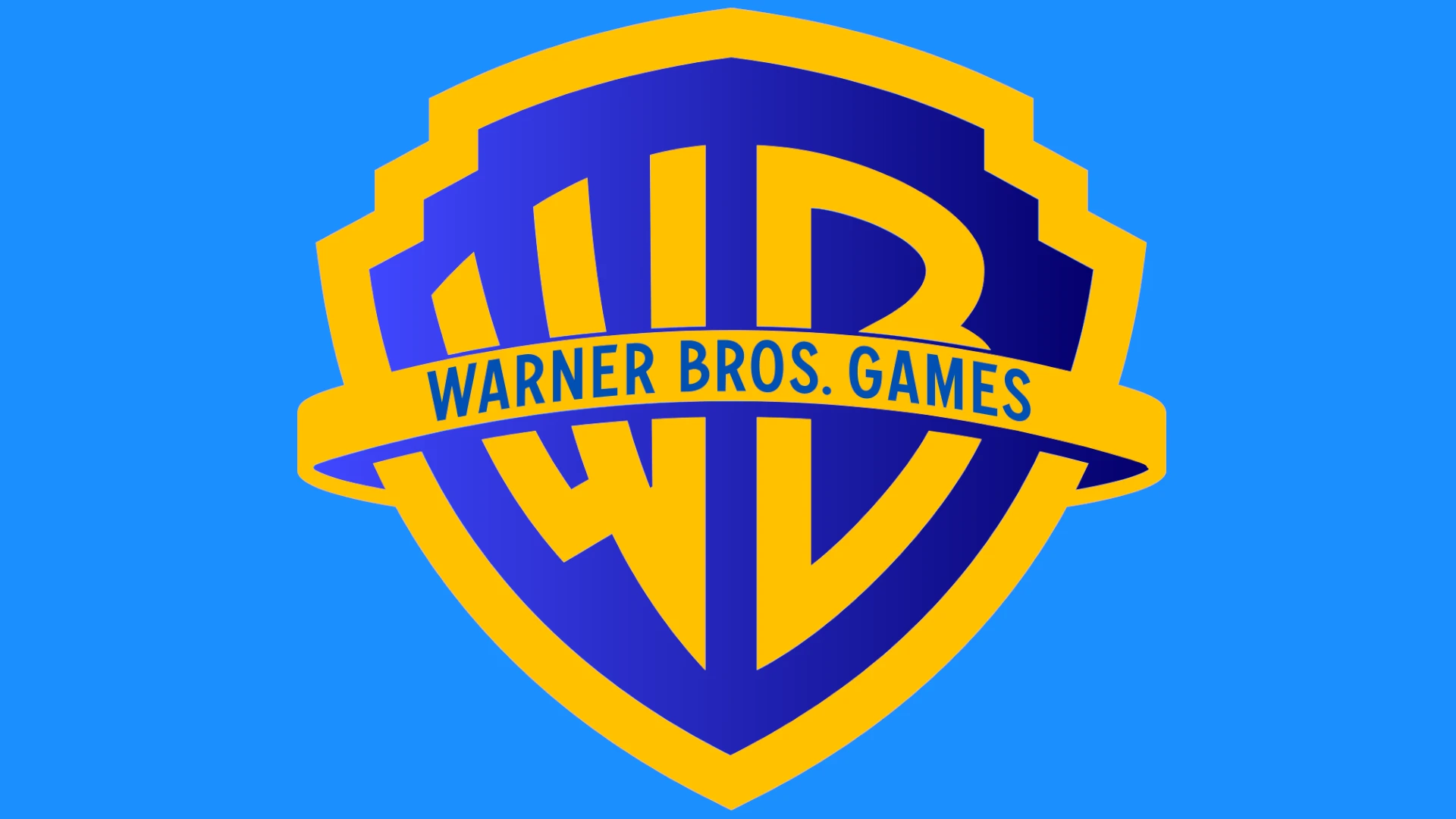The fate of Bugs Bunny, Daffy Duck, and the rest of the Looney Tunes gang may be up in the air. According to a recent report from entertainment insider Jeff Sneider via The InSneider, Warner Bros. Discovery is seriously considering “ridding themselves of Looney Tunes entirely.” While the company has made no official announcement, the mere suggestion that one of the most iconic animation brands in history could be sold has stirred passionate reactions from fans and industry veterans alike.
Warner Bros. Reportedly Weighing the Sale of Looney Tunes: What’s Really Going On?
The Spark: Coyote vs. Acme and Strategic Shifts
Fueling the speculation is the controversial treatment of Coyote vs. Acme, a completed film that Warner Bros. shelved before eventually selling its distribution rights to Ketchup Entertainment for around $50 million. This unorthodox move raised eyebrows not just for the decision to skip a theatrical release, but for what it signaled: a broader pivot in how WBD handles its legacy content.
This isn’t just about one film. It’s part of a larger pattern—WBD has recently axed projects, pulled titles from HBO Max to save on residuals, and reevaluated major IPs across its portfolio. The potential offloading of Looney Tunes may be the most dramatic example yet of CEO David Zaslav’s cost-cutting strategy and shifting priorities.
A Cultural Crown Jewel on the Chopping Block?
Looney Tunes isn’t just another cartoon franchise. It’s the DNA of Warner Bros.—a brand that dates back to the 1930s and has shaped the childhoods of generations. Characters like Bugs Bunny, Porky Pig, and Tweety have transcended media to become global icons, with influence spanning TV, film, video games, theme parks, merchandise, and even politics through parody and satire.
Critics have likened the rumored move to Disney selling off Mickey Mouse—unthinkable on paper. “Looney Tunes is to Warner Bros. what Mickey is to Disney. Selling it would be like amputating your own brand,” one analyst remarked in a recent Theme Park Insider column.
Fan and Industry Reactions: Outrage, Concern, and Curiosity
Online forums, Reddit threads, and entertainment podcasts have been abuzz since the news broke. Some longtime fans are expressing dismay, worried that new ownership could dilute the creative integrity of the brand or shift it away from its original comedic edge.
On the flip side, there are voices in the entertainment world who see this as a potential fresh start. A new studio or tech company might breathe life back into Looney Tunes with modern animation, interactive streaming content, or renewed focus on theatrical features.
Why Would Warner Bros. Do This?
It all comes down to value and vision. Warner Bros. Discovery has been under pressure to reduce its massive debt and streamline its offerings. While Looney Tunes is deeply beloved, it may not be delivering the commercial returns of WBD’s other properties like Harry Potter, DC Comics, or Game of Thrones. There’s also the fact that younger generations are less familiar with the characters, despite recent revivals like Looney Tunes Cartoons on Max and the Space Jam reboot.
Selling the brand could provide immediate capital, while freeing the studio from the long-term challenge of modernizing a legacy IP in today’s fast-moving content landscape.
What Happens Next?
As of June 2025, there has been no confirmation from Warner Bros. Discovery regarding a sale. Industry insiders suggest the company is still in the exploratory phase, gauging interest from potential buyers and assessing the long-term brand impact.
Until then, the future of the Looney Tunes legacy hangs in the balance—caught between nostalgia and corporate strategy. Whether Bugs Bunny says “That’s all, folks!” under Warner Bros.’ roof or someone else’s remains to be seen.
Key Takeaways
- Warner Bros is reportedly considering selling the entire Looney Tunes franchise according to industry insider Jeff Sneider.
- The potential sale follows Warner Bros’ decision to offload the film “Coyote vs. Acme” to an independent distributor.
- This move represents a significant shift for Warner Bros as Looney Tunes has been a cornerstone of their brand identity for generations.
Potential Sale of Looney Tunes Brand
Warner Bros. appears to be considering a significant move that could reshape the entertainment landscape. Industry insider Jeff Sneider has reported that the studio might be looking to sell off its iconic Looney Tunes franchise.
Reasons Behind the Sell-off Consideration
Warner Bros.’ potential decision to sell Looney Tunes comes amid broader financial restructuring at the company. The studio has been reevaluating its portfolio of intellectual properties following recent mergers and acquisitions that formed Warner Bros. Discovery.
Financial pressures may be driving this consideration. The entertainment giant has been looking to reduce debt and streamline operations since the Warner-Discovery merger.
Recent disappointments might have contributed to this decision. According to multiple reports, issues surrounding “Coyote vs. Acme” – a film that Warner Bros. initially shelved before finding a buyer – may have influenced executives’ thinking about the future of the Looney Tunes brand.
The studio appears to be focusing resources on its most profitable franchises and properties, potentially viewing Looney Tunes as underperforming relative to other assets.
Potential Buyers and Market Impact
Several major entertainment companies could express interest in acquiring the Looney Tunes brand:
- Disney: Already owns competing animation studios and has a history of high-profile acquisitions
- Netflix: Seeking more family-friendly content for its streaming platform
- Universal: Could integrate Looney Tunes with its theme park attractions
- Sony Pictures: Looking to expand its animation portfolio
The sale would significantly impact the animation industry. Looney Tunes characters like Bugs Bunny and Daffy Duck have been cultural icons for generations.
Market analysts suggest the brand could fetch hundreds of millions or potentially billions given its global recognition and merchandising potential. The characters remain valuable IP despite recent challenges.
Comparison with Other Studio Asset Sales
This potential sale follows a pattern of studios divesting legacy properties. In recent years, Disney acquired Fox’s entertainment assets, and Amazon purchased MGM’s film library.
Unlike those transactions, this would involve a singular brand rather than an entire studio. This makes it more comparable to when Hasbro acquired entertainment properties like Power Rangers from Saban in 2018.
Warner Bros. previously sold some gaming divisions while maintaining core IP. This Looney Tunes situation differs as it involves potentially parting with characters that have been synonymous with the studio for decades.
Industry experts note that animation properties have retained strong value even as other media assets fluctuate. Streaming platforms have particularly sought family-friendly content with established recognition.
Industry Insider Jeff Sneider’s Role
Jeff Sneider has emerged as a key figure in breaking entertainment industry news, particularly regarding Warner Bros. and their potential plans for the Looney Tunes franchise. His reporting through his newsletter and podcast appearances has brought attention to the possible sale of this iconic animation brand.
Sneider’s Track Record and Credentials
Jeff Sneider has built a reputation as a reliable entertainment industry insider with a focus on breaking news about major studios. He previously worked for notable outlets including Variety, TheWrap, and Collider, establishing himself as a credible source for film industry information.
Sneider now runs his own newsletter called “The InSneider,” where he frequently shares exclusive scoops and insider information. His reporting on Warner Bros. potentially selling the Looney Tunes brand came through this platform.
Industry professionals and fans alike follow Sneider for his connections within Hollywood and his track record of accurate reporting on studio decisions before they become public knowledge.
The Hot Mic Podcast and Its Influence
“The Hot Mic” podcast serves as another important platform for Sneider to share industry insights. Co-hosted with John Rocha, the show discusses breaking entertainment news and provides analysis of industry trends.
The podcast has gained significant influence in entertainment circles for its timely information and insider perspective. When Sneider mentions potential studio moves on “The Hot Mic,” it often generates widespread discussion across social media and entertainment news sites.
Through the podcast, Sneider elaborated on Warner Bros. Discovery’s potential motivations for selling Looney Tunes, citing financial considerations and the troubled production of “Coyote vs. Acme” as possible factors in the decision.
Implications for Entertainment Industry
The potential sale of Looney Tunes represents a major shift in how legacy media companies manage their iconic properties. This move could reshape entertainment industry strategies while testing the loyalty of generations of fans.
Shifts in Intellectual Property Management
Warner Bros. possibly selling Looney Tunes signals a significant change in how studios view legacy IP. The company appears to be evaluating which properties deliver the most value in today’s competitive market.
Major studios increasingly focus on franchises with proven global appeal and merchandising potential. The Looney Tunes situation follows similar patterns seen with other classic properties changing hands.
IP consolidation has become common, with companies like Disney acquiring major properties (Star Wars, Marvel) while others divest brands that don’t fit current strategies. This approach prioritizes immediate financial returns over long-term brand building.
Whoever acquires Looney Tunes would gain characters with cross-generational recognition and extensive licensing opportunities. The characters remain valuable despite recent content struggles.
Fan Reactions and Brand Loyalty Concerns
News of the potential sale has sparked strong reactions from longtime Looney Tunes fans. Many worry about the characters’ future and whether a new owner would respect the brand’s legacy.
Fan communities on social media have expressed concern about possible changes to beloved characters like Bugs Bunny and Daffy Duck. Some fear the characters might be reimagined in ways that lose their classic appeal.
The situation mirrors other instances where audiences felt disconnected from familiar characters after ownership changes. Brand loyalty often hinges on maintaining consistent character traits while thoughtfully evolving for new audiences.
Negative reception to the “Coyote vs. Acme” situation seems to have influenced Warner Bros.’ decision. This demonstrates how audience reactions can directly impact major business decisions about iconic intellectual property.
Warner Bros and Their Historical Brands
Warner Bros has maintained a diverse portfolio of iconic brands throughout its century-long history in the entertainment industry. The company’s approach to managing these valuable properties has evolved significantly over time, especially in recent years.
Looney Tunes as a Cultural Icon
Looney Tunes stands as one of Warner Bros’ most recognizable and beloved properties. Created in the 1930s, these animated shorts featuring characters like Bugs Bunny, Daffy Duck, and Wile E. Coyote have become deeply embedded in global popular culture.
The characters have appeared across multiple media platforms including films, television series, comic books, and merchandise. Their distinct personalities and catchphrases like “What’s up, Doc?” have become part of the cultural lexicon.
Warner Bros has leveraged the Looney Tunes brand through various iterations over decades. This includes modern adaptations like “The Looney Tunes Show” and the recent “Space Jam: A New Legacy” featuring LeBron James.
The potential sale of such a historically significant brand represents a major shift in Warner Bros’ business strategy.
Past Transitions and Company Restructuring
Warner Bros has undergone several significant ownership and structural changes throughout its history. The studio has navigated numerous transitions while managing its valuable intellectual properties.
In 1969, Kinney National Company acquired Warner Bros, forming Warner Communications. Later mergers created Time Warner in 1990 and AOL Time Warner in 2001, before becoming WarnerMedia under AT&T in 2018.
The most recent major change came in 2022 when Warner Bros Discovery was formed through the merger with Discovery, Inc. This restructuring brought significant cost-cutting measures and strategic realignments.
Previous brand management decisions included licensing DC Comics to other studios and the controversial shelving of nearly-completed projects like “Batgirl” for tax write-offs.
The potential Looney Tunes sale follows other strategic moves, including finding a buyer for “Coyote vs. Acme” rather than shelving it completely.
Potential Impact on Related Projects
The potential sale of Looney Tunes by Warner Bros. could significantly disrupt current productions and future collaborations featuring these iconic characters. This possible business decision would have far-reaching consequences for entertainment projects across various media platforms.
Ongoing Productions Affected by the Sale
The uncertainty surrounding Looney Tunes ownership could immediately impact several projects in development. “Coyote vs. Acme,” a live-action/animation hybrid film, has already faced distribution challenges with Warner Bros. ultimately offloading it to an independent distributor.
Other productions like the HBO Max series “Looney Tunes Cartoons” might face an uncertain future if the brand changes hands. The streaming platform renewed the show in 2021, but ownership changes could affect its continuity.
The recently announced “Marvin the Martian” movie project might also hang in the balance. Production schedules could be delayed while ownership transitions occur.
Video game adaptations and merchandise licensing deals would need renegotiation with any new owner, potentially disrupting revenue streams and release timelines.
Future of Looney Tunes Collaborations
A change in ownership could either revitalize or restrict collaborative opportunities for the Looney Tunes franchise. New management might pursue fresh partnerships with companies like Netflix or Disney to expand the characters’ reach.
The rumored Looney Tunes crossover with Warner’s Narnia project would likely be canceled or significantly reimagined if the sale proceeds. This high-profile collaboration was expected to introduce Bugs Bunny and friends to a new generation.
Theme park attractions featuring Looney Tunes characters at Warner Bros. theme parks worldwide would require new licensing agreements. This could impact visitor experiences and themed areas already in operation.
Fashion and merchandise collaborations with brands like Supreme, which recently featured Looney Tunes characters, might need renegotiation under new ownership terms.
Comparative Analysis with MCU and Marvel Studios
The stark difference between Warner Bros’ handling of Looney Tunes and Disney’s approach with Marvel highlights potential lessons for animation franchises in today’s entertainment landscape.
Marvel Studios’ Success with Superhero Brands
Marvel Studios transformed from a struggling comic book company into an entertainment juggernaut under Kevin Feige’s leadership. The Marvel Cinematic Universe (MCU) has generated over $29 billion globally since Iron Man’s 2008 release.
The key to Marvel’s success has been strategic planning. They mapped out phases of interconnected stories years in advance. This created a cohesive universe where characters like Iron Man, Captain America, and Thor could interact.
Marvel also showed patience in building their brand. They introduced the Avengers only after establishing individual heroes. When Disney acquired Marvel in 2009 for $4 billion, they respected the existing creative vision.
The X-Men and Mutant arc integration demonstrates Marvel’s ability to refresh their universe. This keeps audiences engaged while bringing in new viewers.
Lessons Warner Bros Could Learn from Marvel
Warner Bros could adopt Marvel’s long-term planning approach with Looney Tunes. Rather than standalone projects, they might benefit from a cohesive strategy that builds character relationships across different media.
Marvel Studios treats its superhero team as valuable intellectual property with careful brand management. Each character receives thoughtful development before major crossovers.
Warner Bros’ apparent willingness to sell Looney Tunes contrasts sharply with Disney’s investment in Marvel. Disney recognized Marvel’s potential despite early struggles and supported the vision.
The studio could explore modernizing classic characters while respecting their core appeal. Marvel successfully updated characters like Thor while maintaining their essential traits.
Cross-platform storytelling could also revitalize Looney Tunes, creating experiences across films, television, and streaming services like Marvel has done with Disney+.
Impact on Actors and Industry Talent
A potential sale of the Looney Tunes brand would significantly affect voice actors and creative talent who work with the iconic characters. The ripple effects could impact both established and emerging performers in animation.
Career Trajectories Following Brand Sales
When major entertainment brands change hands, voice actors often face uncertainty. Current Looney Tunes voice performers might need to renegotiate contracts or risk replacement if new owners decide to refresh the characters.
Rising stars like Sadie Sink and Margaret Qualley, who’ve shown interest in animation work, might find fewer opportunities if Warner Bros. divests its animation properties. Similarly, Jesse Plemons, who has demonstrated vocal versatility in recent projects, could lose potential voice acting roles.
Julia Butters, despite her young age, has shown promise for character voice work that might be limited if Looney Tunes projects decrease. Harris Dickinson, who has been exploring diverse roles, might find one potential career path narrowed.
Synergies Between Actors and Animation Brands
Animation brands create valuable relationships between performers and characters that build careers. Voice actors often become closely identified with their animated counterparts, creating marketable personas across media.
When talent like Jesse Plemons develops a connection with animated characters, it can lead to convention appearances, merchandise deals, and long-term employment security. Margaret Qualley and Sadie Sink represent the type of crossover talent that animation studios typically seek to attract younger audiences.
Harris Dickinson and Julia Butters exemplify performers who could benefit from animation work to diversify their portfolios between live-action projects. Brand sales disrupt these synergies, forcing talent to rebuild relationships with new owners or seek opportunities elsewhere.
Frequently Asked Questions
The potential sale of Looney Tunes by Warner Bros. raises several important questions about the future of this iconic animation brand. Industry insiders have reported significant developments that could change the ownership of beloved characters like Bugs Bunny, Daffy Duck, and the rest of the Looney Tunes roster.
What are the potential reasons behind Warner Bros.’ decision to sell the Looney Tunes brand?
Warner Bros. Discovery may be considering the sale of Looney Tunes as part of broader cost-cutting measures. The company has been making significant changes to its content strategy since the merger that created Warner Bros. Discovery.
Financial pressures could be driving this decision, as the company continues to address debt concerns. The disappointing performance of recent Looney Tunes projects, including the shelved “Coyote vs. Acme” film, might have influenced their perspective on the brand’s profitability.
The company appears to be reevaluating its intellectual property portfolio to focus on assets with clearer revenue potential in today’s media landscape.
What impact would selling the Looney Tunes brand have on current and future productions?
A sale would likely pause or significantly alter any Looney Tunes projects currently in development. Existing content deals, including streaming arrangements for classic cartoons, would need to be renegotiated with the new owner.
The creative direction of the characters could change under new ownership. Different companies might take the characters in new directions or prioritize different types of content.
Fans might see either a revival of classic Looney Tunes storytelling or a complete reimagining of the characters depending on the buyer’s vision.
Who are the potential buyers for the Looney Tunes property?
Major entertainment companies like Disney, Netflix, or Sony Pictures could be interested in acquiring the Looney Tunes brand. These companies have the financial resources and distribution platforms to maximize the value of such a recognizable property.
Toy and merchandise companies might also consider the purchase, given the enduring appeal of Looney Tunes characters as consumer products. Companies with theme park interests could see value in the characters for attractions and experiences.
Private equity firms specializing in media and entertainment assets might bid as well, seeing potential to revitalize the brand before selling it later.
What is the anticipated value of the Looney Tunes brand in the current market?
Industry analysts have not yet provided specific valuations for the Looney Tunes brand. The value would include film and television rights, merchandise licensing, and digital content opportunities across multiple platforms.
The brand’s nearly 100-year history and global recognition would likely command a premium price. However, recent underperformance might impact the final valuation.
The true value will depend on the buyer’s ability to leverage the characters across multiple revenue streams, from streaming content to consumer products and experiences.
How does the sale of the Looney Tunes brand align with Warner Bros.’s overall business strategy?
Warner Bros. Discovery has been streamlining operations since the merger, focusing on profitable core assets. The company has shown willingness to sell or shelve properties that don’t align with their current financial goals.
This potential sale follows other significant moves, such as canceling completed projects and restructuring content strategies across platforms. Warner Bros. may be prioritizing franchises with clearer paths to profitability in the streaming and theatrical markets.
The company might be shifting resources to newer intellectual properties with more contemporary appeal to today’s audiences.
What legal considerations come into play with the sale of a legacy brand like Looney Tunes?
Any sale would involve complex rights agreements covering decades of content across multiple media formats. The transfer of copyright ownership for characters created as far back as the 1930s involves intricate legal considerations.
Existing licensing deals with merchandise partners, theme parks, and other businesses would need careful review and potential restructuring. International rights considerations add another layer of complexity, as the brand has different legal status in various global markets.
The buyer would need to ensure they’re acquiring complete rights to avoid future disputes over character usage or revenue sharing.







